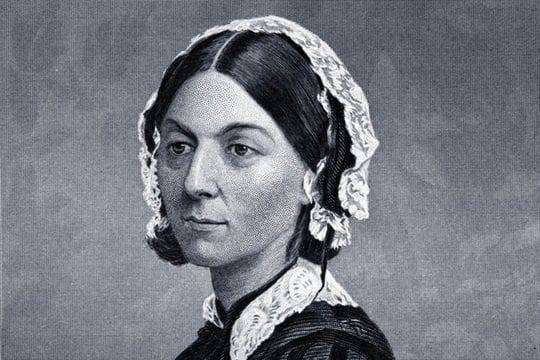#PhD in Public Health
Text

Pursuing a PhD in Public Health in Ghana equips health professionals with advanced skills and knowledge to tackle pressing health challenges. This doctoral program, designed for public health professionals, emphasizes research, policy-making, and practical solutions to improve community health.
In Ghana, a PhD in Public Health offers numerous benefits, including addressing local health issues, enhancing career prospects, and contributing to national health policies. Professionals pursuing a PhD in Public Health can substantially impact public health outcomes, establishing themselves as leaders in the field and promoting good change in Ghana’s healthcare system.
0 notes
Text
1 note
·
View note
Text
panicked and applied to any even vaguely microbiology-related phd programme and now i have an interview for one tomorrow and i'm like. hm i don't think i want to spend 4 years of my life on this topic actually.
#it IS public health and kinda infectious disease related#but it's not virology and ik beggars can't be choosers here but i really really want to be doing virology#and idk if i get this one if i'll be stuck in that field forever and i don't. want that.#but also no one else is giving me an interview!!! there are straight up no funded virology phd positions left
4 notes
·
View notes
Text
I hate the idea of working a 9-5 so much that I’m considering a PhD
#man academia is full of disabled people#phd social welfare after my master’s in social work maybe#hmm or public health… we’ll see#personal#too talkative tonight
4 notes
·
View notes
Text
going on a leave of absence from grad school and dropping my current class like

#to be clear the class itself is literally not the problem#the problem is my job but uhhhhh nothing is going to change on that front so SOMETHING needs to get taken off my plate#and i'll do grad school full time next year and that will be a lot more manageable and chill#apparently i can get on like the really really good UT health insurance if i TA just 30 hours a week???#AND tuition is covered??????? plus about 60% of regular teacher salary -- and that's like public school teacher salary so more than me#my advisor is trying really hard to get me to switch into the phd track tbd#i hear if you teach college students you don't need to have numerous conversations each week with them about appropriate bathroom behavior#like not attempting to flush doorstops#as i have had to do every week in 4th grade this year#anywayyyyyy i still maintain that i think the UT phd specifically would probably not be a good fit for me but we'll see we'll see
5 notes
·
View notes
Text
truly so exhausting to mark out a future why can't i just learn forever not in an academia way in a way spread out across every single discipline. why do i need to major in something to get a job in it. why do i have to focus on distribution requirements and major requirements and premed requirements instead of just learning what i want. i should give up on the idea of becoming a doctor probably but what else would i even do truly no clue.
#i love chemistry i don't want to do chem research...#i think i could be happy as an english/gender studies professor truly but i don't know i could be successful in a phd program#all of this is so insane for me to think about i know i am sixteen but also i feel so so trapped by all of it#maybe i should give up on stem -_-#or figure out what the hell a career in public health would entail#mothposting#might delete this but i love to muse
6 notes
·
View notes
Text
I am thrilled and deeply grateful to have been awarded my PhD from the University of Hertfordshire! Which generated more than 30 articles and presentations.
My research, titled “Investigating the Impact of the COVID-19 Pandemic on Antimicrobial Stewardship in Acute Care Settings and the Pharmacist’s Role,” was a journey of learning, perseverance, and passion.
A huge thank you to my family, supervisors, colleagues, and everyone who supported me throughout this journey. Your encouragement and guidance have been invaluable.
I am excited to contribute to the field of public health, tackling antimicrobial resistance, and enhancing antimicrobial stewardship to help save patients’ lives.
This research highlights the critical role pharmacists play in safeguarding public health, especially during unprecedented challenges like the COVID-19 pandemic.
Here’s to new beginnings, continued learning, and making a positive impact on healthcare!
#PhDAchievement
#GlobalHealth
#AMR #AMS
#AntimicrobialStewardship #AntimicrobialResistance #PublicHealth #Pharmacy #HealthcareResearch #COVID19 #SavingLives
#HertsAlumni #Research
#GoHerts
✋ Read all articles from this link
#antibiotics#antimicrobial resistance#healthcare#public health#world health organization#clinical research#inspiration#phd student#research#journal#publishing#medication#safety#infectioncontrol#respiratory infection#long covid#covid#resistance#resistant#pharmacist#doctor who#nurse#hospital#nhs#nhs england#save our nhs#england#uk
1 note
·
View note
Text
Dirty Drinking Water in Jugsalai Prompts AJSU Party's Action
Residents Forced to Consume Contaminated Water, AJSU Submits Memorandum to Executive Officer
Residents of Jugsalai, under the Jugsalai Municipal Council, are forced to consume dirty drinking water supplied by the PHD department. On Monday, the AJSU Party submitted a memorandum to the Executive Officer of the Jugsalai Municipal Council, urging a swift resolution to the issue.
JAMSHEDPUR –…
#AJSU Party#Arup Mallik#जनजीवन#contaminated water#health issues#Jamshedpur#Jugsalai#Life#municipal council#PHD department#public health
0 notes
Text
praying when I recover enough to work I can get a job at a nonprofit that targets social determinates of health so I can leverage my way into a social and behavioral sciences phd and go fully into the public health sphere
#I did a gender studies minor so I have a background in public health but it doesn’t feel like enough for a phd program#and I want time to work and not be in school and just coast for a while
0 notes
Text
Unlock diverse career paths with a PhD in Public Health. Find online programs, job prospects, and essential skills for impactful roles.
Read More: Career in PhD in Public Health
0 notes
Text
1 note
·
View note
Text
0 notes
Text
Pursue the best PhD in Public Health degree in Zambia at TAUZ. Enhance your expertise and career prospects with our comprehensive program.
1 note
·
View note
Text
The 12 Most Interesting Facts about Nursing

The nursing profession is a cornerstone of the healthcare system, rich in history, filled with unique facts, and bolstered by surprising statistics that highlight its evolution and impact. Whether you’re a registered nurse, nurse practitioner, nurse’s assistant, or involved in nurse staffing, there is always more to learn about this vital field. Here, we indulge into 12 intriguing facts about nursing that might surprise even those within the industry.
1. Nursing’s Ancient Origins

The earliest records of nursing date back to 300 A.D. in the Roman Empire, where nurses operated in what were considered hospitals at the time. These early healthcare institutions, known as valetudinaria, provided care primarily to soldiers and slaves. Nursing during this period was rudimentary and primarily focused on basic care and comfort.
The practice of nursing evolved significantly during the Middle Ages. Monastic orders, particularly in Europe, took on the role of caregivers. Monks and nuns provided care in hospices and infirmaries, laying the groundwork for modern nursing. The evolution continued with the establishment of more structured medical and nursing practices in response to the Black Death in the 14th century. These historical roots underscore the longstanding tradition of compassion and care in nursing.
2. Florence Nightingale’s Pioneering Influence

Florence Nightingale, often referred to as the founder of modern nursing, played a major role in transforming the profession. Born into a wealthy British family, Nightingale defied societal expectations to pursue a career in nursing. Her work during the Crimean War (1853–1856) brought her international acclaim. She was appalled by the unsanitary conditions and high mortality rates in military hospitals and implemented rigorous hygiene practices, significantly reducing the death rate.
Nightingale’s contributions extended beyond the battlefield. She established the Nightingale Training School for Nurses in 1860 at St. Thomas’ Hospital in London, emphasizing the importance of formal education and training for nurses. Her book, “Notes on Nursing: What It Is and What It Is Not,” became a seminal text in nursing education. Nightingale’s legacy includes her pioneering use of statistical analysis to advocate for healthcare reform, showcasing the impact of evidence-based practice.
3. The First Nursing School
The establishment of the Bellevue Hospital School of Nursing in New York City in 1873 marked a significant milestone in American nursing history. Inspired by Florence Nightingale’s principles, the school offered a one-year program that combined theoretical instruction with practical experience. This model set the standard for future nursing education.
Bellevue’s success prompted the establishment of other nursing schools, such as the New England Hospital for Women and Children (now part of the Boston Medical Center) and Massachusetts General Hospital’s nursing school. These institutions played a crucial role in professionalizing nursing and raising the standards of patient care. The emphasis on rigorous training and education helped transform nursing into a respected and essential profession.
4. The Physical Demands of Nursing
Nurses are known for their dedication and hard work, but the physical demands of the profession are often underestimated. On average, nurses walk four to five miles during a typical 12-hour shift, which is double the daily walking distance of most people. This constant movement is necessary to provide timely and effective care to patients, but it also highlights the physical challenges nurses face.
The demanding nature of nursing underscores the importance of proper footwear and ergonomics in the workplace. Comfortable, supportive shoes can help prevent injuries and reduce fatigue, enabling nurses to perform their duties effectively. Additionally, the physical activity associated with nursing contributes to overall health, but it also necessitates a focus on self-care and occupational health strategies to mitigate the risk of long-term musculoskeletal issues.
5. Dominance in Healthcare Education
Nursing is a dominant field within healthcare education, with approximately 50% of students in healthcare-related programs pursuing nursing degrees. This significant representation reflects the critical role nurses play in the healthcare system. The demand for nursing education has led to the development of numerous undergraduate and graduate programs, offering specialized training in various areas such as pediatric nursing, geriatric nursing, and critical care.
The strong support network among nursing students and professionals fosters a collaborative learning environment. Nursing programs emphasize not only clinical skills but also the development of critical thinking, communication, and leadership abilities. This comprehensive approach ensures that nursing graduates are well-prepared to meet the diverse and complex needs of patients.
6. Top Nursing Jobs
Nursing offers a wide range of career opportunities, and several nursing roles are consistently ranked among the top jobs in the United States. According to U.S. News & World Report, three nursing roles were among the top 40 jobs in 2021: registered nurses (ranked 37th), nurse anesthetists (ranked 39th), and nurse practitioners (ranked 3rd).
These rankings highlight the diverse and lucrative opportunities within the nursing profession. Registered nurses (RNs) are the backbone of healthcare, providing essential care and coordination in various settings. Nurse anesthetists, who administer anesthesia and monitor patients during surgical procedures, are highly specialized and command competitive salaries. Nurse practitioners (NPs) have advanced training that allows them to diagnose and treat medical conditions, often serving as primary care providers. The high ranking of NPs reflects the growing recognition of their critical role in expanding access to healthcare.
7. Mary Eliza Mahoney’s Legacy
Mary Eliza Mahoney, the first African American registered nurse in the United States, broke significant barriers in the field of nursing. Born in 1845 in Boston, Mahoney worked at the New England Hospital for Women and Children for 15 years before enrolling in its nursing program. She graduated in 1879, becoming one of only three graduates out of a class of 42.
Mahoney’s accomplishments extend beyond her personal achievements. She co-founded the National Association of Colored Graduate Nurses (NACGN) in 1908, advocating for the inclusion and recognition of African American nurses. The NACGN played a crucial role in supporting black nurses and promoting racial equality in the profession. Mahoney’s legacy is a testament to her resilience, dedication, and pioneering spirit, which continue to inspire nurses today.
8. The U.S. Nursing Workforce
As of 2020, there were approximately three million nurses in the United States, comparable to the population of Jamaica. This vast workforce is essential to the functioning of the healthcare system. Nurses work in a variety of settings, including hospitals, clinics, long-term care facilities, schools, and community health centers.
Globally, there are over 28 million nurses, accounting for 59% of healthcare professionals worldwide. This significant presence underscores the critical role nurses play in delivering healthcare services. However, the global nursing workforce faces challenges such as shortages, particularly in low- and middle-income countries. Efforts to address these shortages include increasing educational opportunities, improving working conditions, and supporting international collaboration.
9. Projected Growth in Nursing
The nursing field is not only large but also poised for continued growth. According to the U.S. Bureau of Labor Statistics, the employment of registered nurses is projected to increase by 7% from 2019 to 2029. This growth is driven by several factors, including an aging population, increased prevalence of chronic diseases, and expanded access to healthcare services.
The projected growth in nursing offers substantial opportunities for those entering the profession. It also underscores the importance of supporting nursing education and training programs to meet the demand for skilled nurses. Healthcare organizations and policymakers must invest in initiatives that attract and retain nurses, ensuring a robust workforce to provide high-quality care.
10. Diverse Work Environments
While hospitals remain the largest employer of nurses, the nursing profession offers diverse work environments. According to data from the U.S. Bureau of Labor Statistics, the distribution of nurses across various settings is as follows:
Hospitals: 60%
Ambulatory healthcare services: 18%
Nursing and residential care facilities: 7%
Government: 5%
Educational services: 3%
This diversity allows nurses to work in a range of settings, each with its unique challenges and opportunities. Ambulatory healthcare services include outpatient clinics, surgical centers, and primary care practices, where nurses play a vital role in patient care and health promotion. Nursing and residential care facilities provide long-term care for individuals with chronic illnesses or disabilities, emphasizing the importance of compassionate, ongoing support. Government and educational services offer roles in public health, policy, research, and academia, contributing to the advancement of the profession and the improvement of public health.
11. National Nurses Week
National Nurses Week, celebrated annually from May 6 to May 12, honors the challenging work and dedication of nurses. Established over 40 years ago, this week-long celebration culminates on May 12, the birthday of Florence Nightingale. The week recognizes the significant contributions of nurses to healthcare and society.
National Nurses Week includes various events and activities to celebrate and appreciate nurses. These may include educational seminars, award ceremonies, community outreach programs, and public awareness campaigns. The celebration provides an opportunity to highlight the vital role of nurses, advocate for their needs, and inspire the next generation of nursing professionals.
12. Staffing Agencies and Nursing Employment
Nurse staffing agencies play a crucial role in addressing the fluctuating demand for nursing services. Many nurses find employment through staffing agencies, which help them secure jobs and new opportunities. These agencies match nurses with healthcare facilities that need additional staff, ensuring that patient care remains uninterrupted.
For staffing agencies, keeping pace with the rising demand for nurses is crucial. Solutions like invoice factoring can provide the necessary funding to grow and support their operations effectively. Invoice factoring allows agencies to sell their accounts receivable at a discount in exchange for immediate cash, helping them manage cash flow and invest in recruiting and retaining qualified nurses.
Conclusion
These facts not only highlight the rich history and essential role of nursing but also underscore the profession’s ongoing evolution and the increasing opportunities within the field. Whether you’re a nurse or involved in nursing services, staying informed about these developments is key to advancing in this vital industry. The nursing profession continues to grow and adapt, driven by a commitment to providing high-quality care and improving patient outcomes.
For those involved in nurse staffing, understanding the dynamics of the nursing workforce and exploring financial solutions like invoice factoring can help meet the rising demand and ensure continued success. By recognizing the historical significance, current trends, and future prospects of nursing, we can better support and celebrate this indispensable profession.
For medical students and nurses of all categories, navigating assignments, homework, case studies, research, online classes, and challenging medical units can be daunting. Seeking professional guidance and assistance can make a significant difference in your academic and professional journey. For expert help with these challenges, consider reaching out to Expert Academic Assignment Help at [email protected] Our professional support can help you excel in your studies and career.
#medical students#healthcare#assignment help#nursing student#nursing school#medicine#public health#health and wellness#medical school#medical student#medicare#medical university#university#writters on tumblr#case study#study blog#studyblr#student life#student#studyspo#study motivation#study aesthetic#studying#phd research#clinical research#research#research paper
0 notes
Text
1 note
·
View note
Text
PhD-position (4 years) at Bergen Centre for Ethics and Priority Setting in Health (BCEPS)
The University of Bergen (UiB) is an internationally recognised research university with more than 14,000 students and close to 3,500 employees at six faculties. The university is located in the heart of Bergen.
Call for applications for PhD position
At the Faculty of Medicine, Department of Global Public Health and Primary Care (IGS), a full-time PhD-position is available for a period of four…

View On WordPress
#Doctor of Philosophy (PhD)#International Jobs & Opportunities#International Opportunities#International PhD Scholarship#Jobs/Opportunities#Opportunities#PhD#PhD Fellowship Scheme#Public Health Opportunities#UiB#University of Bergen
0 notes